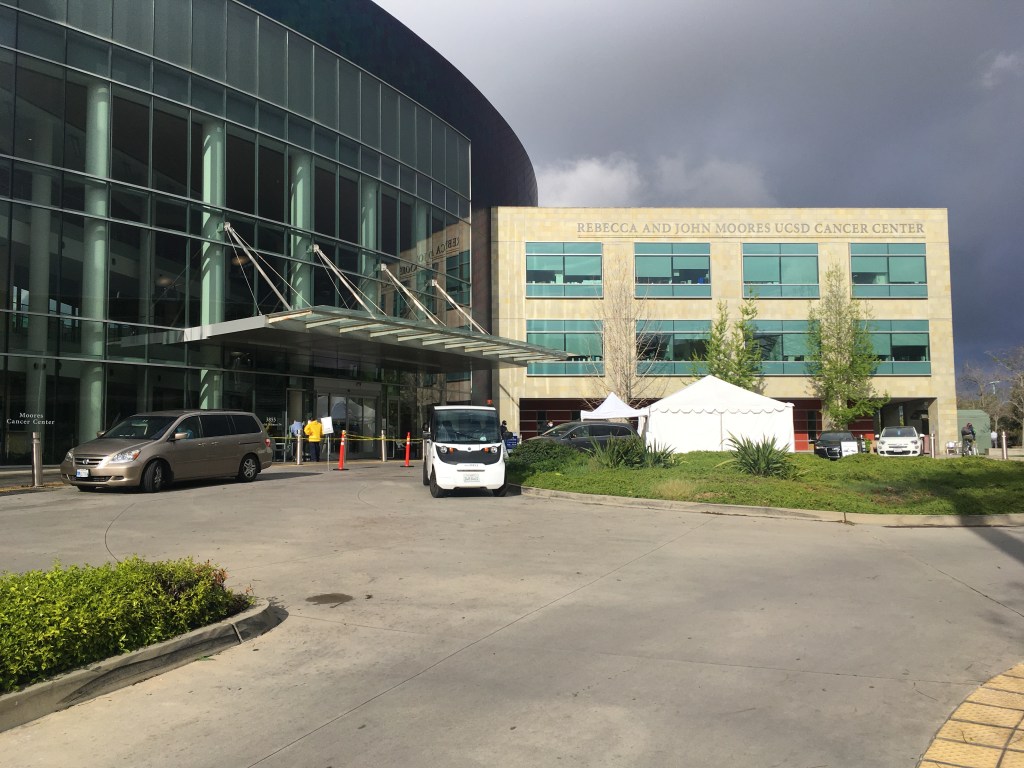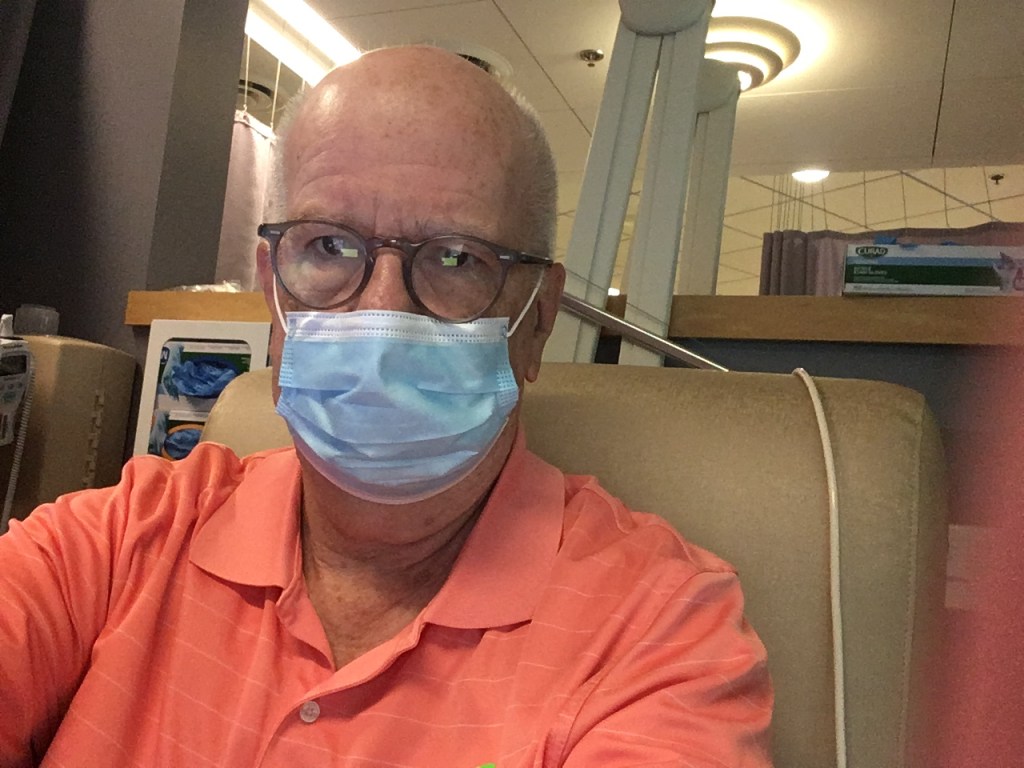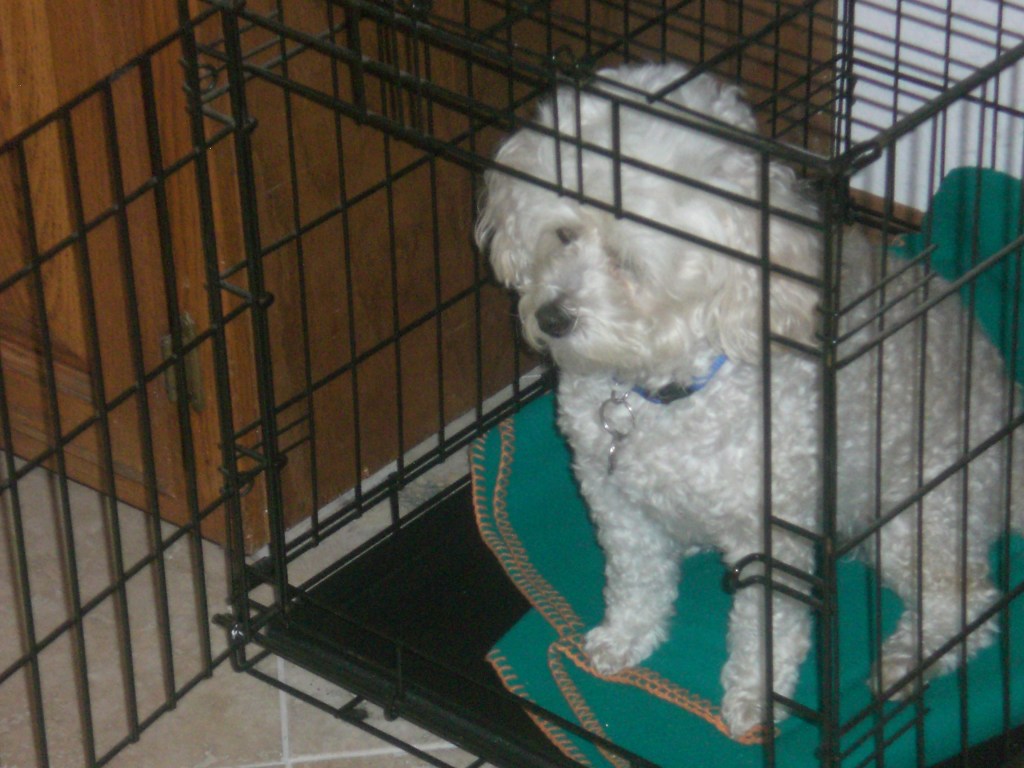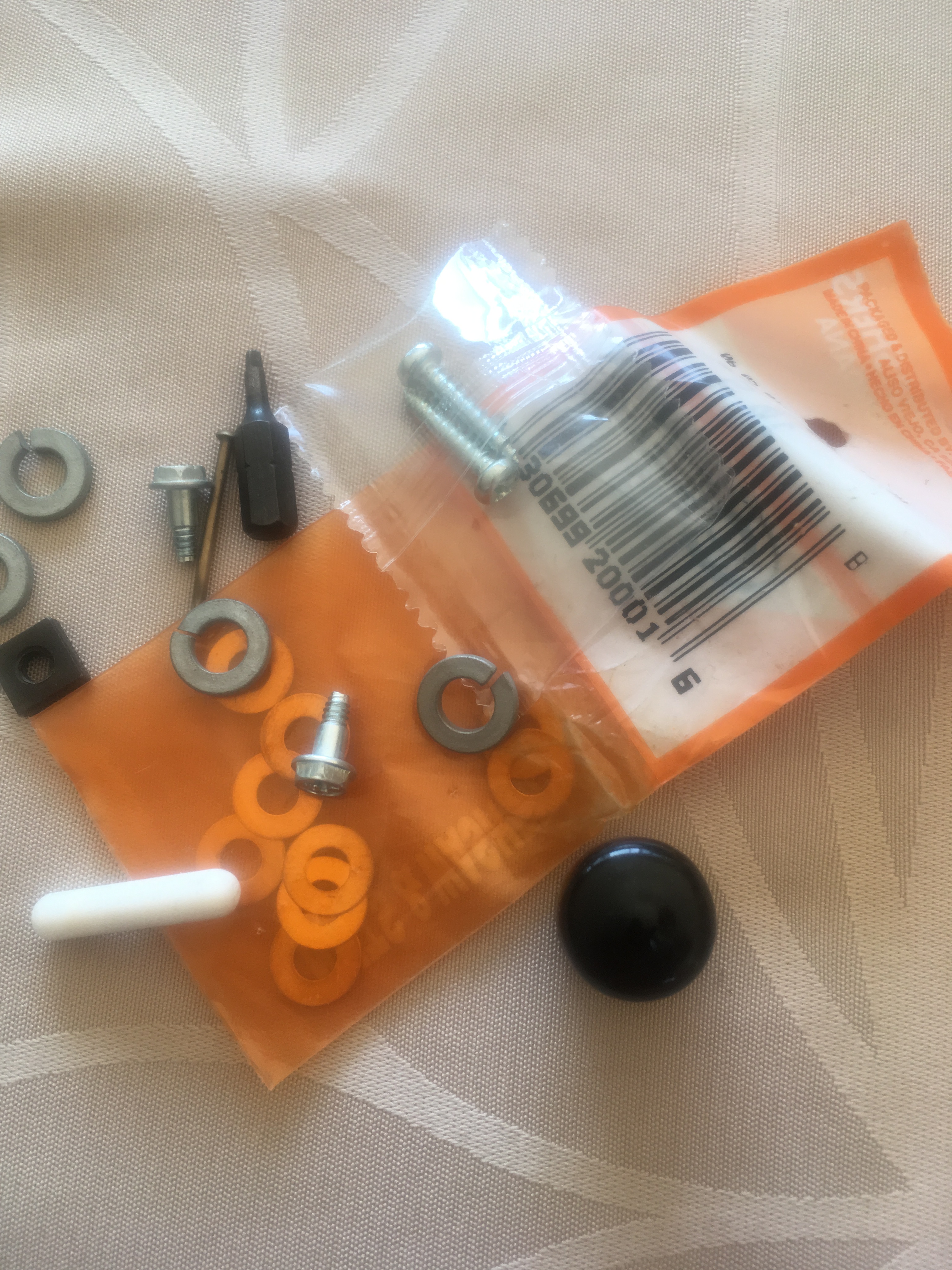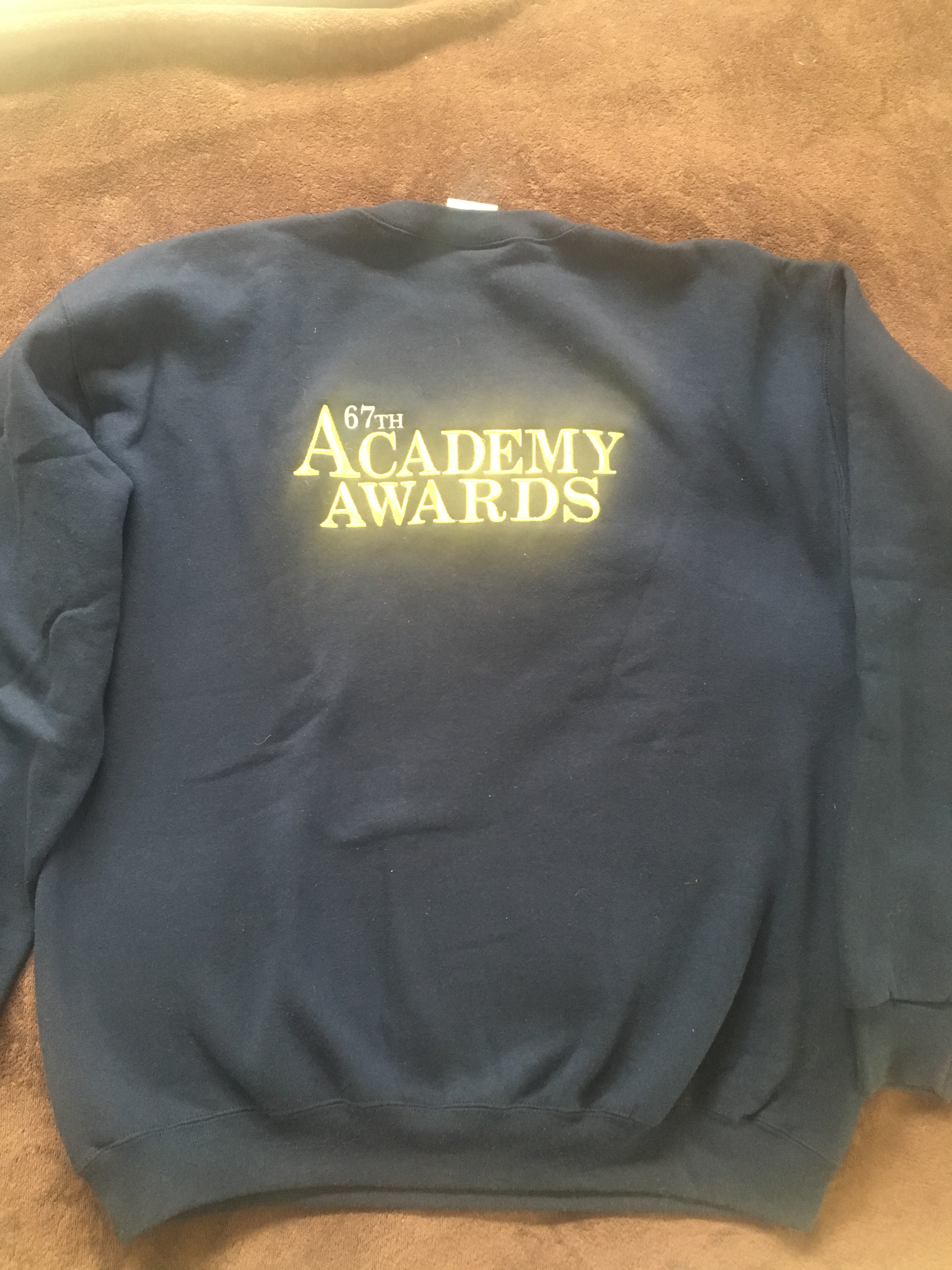I was at one of those interminable management workshops where the “facilitator” decided it would be a great icebreaker to reveal “something people don’t know about you.” It apparently had not dawned on her that there may be a reason to want to keep certain things to yourself. So, I shuffled those to the side, and just said my dad was a mortician. One woman blurted out, “well that explains a lot.” (I still don’t know what she meant by that). Someone else asked if it had changed my attitude toward death. I said I didn’t think so, since it was only attitude I had ever had. But I guess the ice was broken.
“What did your dad do?” is an innocent enough question. But my answer is guaranteed to get a reaction. Some laugh, some shudder, some raise an eyebrow. But all my life, when someone asked, I knew what was coming.
The truth is, I never thought there was anything weird or spooky or unusual about his profession. He was just my dad. Sitting around at the chapel while he was working wasn’t any different for me than if it had been a grocery store or a law office. I was just waiting for a ride home. When I turned sixteen, I started helping him on calls when someone died. Unfortunately for me — and of course the person who died — it was often the middle of the night. The phone would ring and wake him up. He’d sit up on the edge of the bed with his glasses on, a pen in his hand and answer it before the third ring. There was no voicemail, no answering machine and you couldn’t let the call go unanswered even if there had been. He was always on call.
I went with him often, it was my summer job, my weekend job, and my overnight job. I remember one early Sunday morning in October in particular. I was twenty and a senior at the University of Minnesota. I happened to be home for the weekend so I got the wake-up call rather than one of the men he would normally call. It was one of those gray, chilly October Minnesota mornings that remind you that winter will be setting in soon. We drove to the chapel, took the hearse out into the country and stopped at a farmhouse where the farmer lay dead in his bed. We lifted the body on to a gurney and wheeled it into the hearse. I waited in the car while he talked with the family for a while and then we drove back to the funeral chapel. While he embalmed the body I sat on a stool in the corner, and we talked about school. Minneapolis was an hour drive away, and sometime that afternoon, I would catch a ride with another guy who had come home that weekend and had a car.
Once he was done and we were home, we changed clothes and he and Mom and I went to the Catholic church in a nearby little farm burg for their annual fall bazaar. The church was just about the only thing still standing there. The school had been closed and the kids bused into town, and there was a post office grocery store across the street. But the church still drew a crowd. They served a family style chicken dinner in the basement, with mashed potatoes, gravy, canned peas and carrots, fresh baked dinner rolls and pumpkin pie. We weren’t Catholic. We weren’t anything, religion-wise, but he thought it was a good idea to come to functions like this, and we went every year. Not that he advertised. He didn’t need to. His was the only funeral chapel in the town, the only one until the next actual town, ten miles away. No one would think of doing business in that town if you lived in ours, whether it was the funeral home or the hardware store. It was just that kind of hometown.
It wasn’t a lot more than a dot on the map, almost halfway between Minneapolis and Duluth, on old Highway 61, (not to be confused with the Dylan album). It was the county seat and according to the sign at the city limits, home to 2,172 people, with a lake on the east end and a river running through it. It was Minnesota after all; wherever you are, there’s a lake only a skipping stone’s throw away. One of those little Midwest towns with just one stoplight, and a root beer stand at the end of town. Main Street still lived up to its name. The freeway that skirted town had only been completed for a few years, and there was no Walmart. Yet.
At the church, he joked with the priest and greeted several of the parishioners. Everyone knows everyone in a town that size. He poked his head in the kitchen to thank the ladies for the meal and we made our way out through the line of people who were still waiting to get in. We didn’t stay for the raffle.
No one could imagine that four hours later, Dad would be dead.
-0-
He grew up on a farm just outside of town, and until he started school his parents spoke Swedish at home, so he did too. His folks could speak English and they gave up Swedish for the sake of the education of him and his younger sister. But he always said that if it hadn’t been for Johnny Troleen from the neighboring farm who translated for him, he would still be in first grade.
He never intended to stay on the farm. He knew early on what he wanted. A boy in school had died when he was a kid, and Dad was one of the pallbearers. He watched the mortician all through the funeral and decided that is what he wanted to do. He had little idea of what the job really was all about, but his mind was made up. As a high school student, he pumped gas and saved his money to go to college. Everything was looking up. Except, it was 1929. The Great Depression set in, the bank closed and he lost every dime of his savings.
He kept working and graduated from high school in 1931. With what little he had scraped together he went to the university anyway. He got a job at one of the funeral homes in Minneapolis answering the phone on nights and weekends, doing janitorial work and anything else they told him to do. It hardly paid anything, but that barely mattered. There was an apartment above the funeral home where he could stay and that was worth a lot.
Mortuary science was the last “short course” offered at the university. He went to school six days a week, ten hours a day and didn’t study anything but mortuary science. That included a lot of the prerequisites for medical school — biology, anatomy, chemistry, physiology, that sort of thing — but none of the language and sociology of a liberal arts education. There was psychology, but it was part of his curriculum, psychology for mourners.
Ten months after his first class, he was a 19-year-old college graduate, and still needed to do an internship for a year. A funeral home up near Duluth took him on, but even after he had completed his year, he couldn’t get a state license because he wasn’t yet 21. So he stayed. As he had done all through his college year and beyond, he answered the phones and worked weekends and nights, except now he did some of the actual work he had prepared for.
Even after he got his license, he stayed on. It was 1934 and there were no jobs. His parents and sister came to visit but he couldn’t leave his little room above the funeral home. He was on call. They went out to a restaurant and brought food back to him and sat and talked until it was time for them to go home. On the drive home, his dad had made up his mind. “We have to get him out of there. He’s a goddamn prisoner.” Little did any of them realize, that’s what he had signed up for.
-0-
His father negotiated the rent on a vacant building in town and they brought him home to start his own funeral chapel. The world was still in the throes of the Depression. Plus, there was already another funeral home in town. But he had some of that hometown loyalty and he was getting by. Then, as macabre as it may seem, opportunity struck. A popular high school girl was killed in a terrible car accident. It hit at the heart of the town, and it seemed as though no one talked about anything else.
For whatever reason, fate or happenstance, the family chose him to handle the funeral. The young girl was horribly disfigured in the accident. He called upon everything he had learned and virtually reconstructed her face. The girl’s father looked at her and thought it was a miracle. The funeral was held at the high school auditorium and the casket was open. For the longest time after that, people talked about that funeral.
The other mortician in the town stayed in business another six months but never got another case. He moved away and for nearly forty more years, my dad was the town mortician.
-0-
Mom grew up on a farm in northern Minnesota, close to North Dakota and after college taught home economics. She came to town to work for the Farm Security Administration, a New Deal agency. Her job was to teach farm wives to use new kitchen appliances. Pressure cookers were a new invention then, and she introduced dozens of housewives to that new-fangled appliance, and others. She and dad met on a blind date at the ballroom on the east side of the lake. I never saw them dance, but I guess they did, at least once.
Dad’s business did well. In time he was able to buy a vacant lot a couple of blocks off Main Street. Mom drew up plans and they got his own funeral chapel built. The same building, with very few modifications, still stands on that corner and still bears our name. Year in and year out, he averaged seventy funerals a year. Enough that he could handle alone and provide for the family. Mom gave up the pressure cooker lessons, got a funeral director’s license and worked with him in the business, helping to conduct funerals. In 1948 my brother was born, and three and a half years later, I came along. By then, they were both inching toward forty years old and that was old to be having a child.
When my brother started school, Dad ran for the school board and won easily. At the first meeting he was chosen to be chairman, and he kept getting elected and kept getting appointed chairman until I graduated. He and the superintendent lobbied a state legislative committee for a vocational school in our town. The committee agreed, the legislature agreed, the governor signed off on it, and it was built when I was in high school.
He apparently made an impression. When there was an opening in the state legislature both the Republican and Democratic county chairmen came to ask him to run and promised not to let anyone run against him. It was flattering, but he had a business to run and couldn’t leave it.
-0-
One of the paradoxes of his job was that, largely because of the vehicle he owned, he also ran the area ambulance service. The hearse could be easily reconfigured into an ambulance and he both rushed people to hospitals to help save their lives and also took dead bodies away.
Even though it was his life’s work, and it was the only thing he ever wanted to do, the job was hard as hell. He told me one day that if it weren’t for the sense that he was helping people when their world was crashing down on them, the morbidity of the job would have driven him crazy. There’s no question that the dead bodies and the embalming were the easy parts of the job. Helping families through the tragedy was what it was all about.
Even though I worked with him when I was in high school and college, and I was at the funerals, I only ever once really saw what he did, because I wasn’t there for most of it. It was when his uncle Carl died. Dad had lived with Uncle Carl for a couple of years during high school and they stayed close. Carl was a district judge, and he and Aunt Em lived about forty miles away. Dad was really shaken by his death. I knew that, but I didn’t think anything of it. We drove to their house the day before the funeral. The whole family was gathered there. On the drive over, Dad didn’t say more than three words. He was inside himself. He was beside himself. He was hurting like the rest of Carl’s family.
When he parked the car, I could literally see him put his own sorrows aside as he walked to the front porch and squared his shoulders, quickened his step and went to work. He greeted everyone, he forced a little smile, hugged, shook hands and without seemingly doing anything special, let everyone feel that they were going to be okay. It was all right to cry, to grieve, and it would take time, but it was going to be all right. There wasn’t any religion to it; that was someone else’s job. And he was the last person to bring that up anyway. I don’t know how he did it, but I saw it happen in front of me, and I didn’t really see anything at all. It just happened.
And that is what his profession was really all about. He dealt with the dead, but he took care of the living. And that day I understood, he was damn good at it.
He kept office hours, mostly just to be available if someone wanted to know how to handle some of the endless paperwork that comes when a family member dies. People knew they could count on him for that. It wasn’t part of the job; it was part of what he did because they needed help.
While he seemed well suited for it, it was stressful, and he dealt with it, sometimes with a glass or two of brandy at night. He wasn’t so much the prisoner his father saw as he was a slave to the telephone. There were no pagers, certainly no cell phones. If he wanted to relax and go fishing, he would take the boat out on the river and circle back within view of the house every half hour or so. If there had been a phone call of a death, my brother and I would run out and hang a white flag — an old pillowcase on a stick — from the dock and he would come in and go to work.
The phone setup we had was pretty sophisticated for the 50’s and 60’s. The phone company installed a bell on the outside of the house, and both the house phone and the chapel phone rang at home. They each had their own ringtone. If we were all outside, somebody had to stay close enough to the house to be able to run in and answer the chapel phone if it rang.
In his life, they took three vacations. He and Mom drove to Florida with another couple when my brother and I were small and could stay with a neighbor. Every night when they stopped, he would call his counterpart from the next town who was covering for him, to see if he was needed. If the answer had been “yes” he would have come home. Vacation over. As luck would have it, they got to be away for ten days. About half of that was the drive down and back.
When I was in second grade, we went to California during what used to be called Easter vacation. It was the first plane trip any of us had taken, and the only one we would ever take together. We got seats that faced each other, and after the initial excitement wore off, I’m told I slept on the floor most of the way. Those were the days when you dressed up to get on a plane. We flew first to San Francisco, where my brother developed an affinity for shrimp cocktail on Fisherman’s Wharf; then Disneyland, Knotts Berry Farm, Marineland of the Pacific. It was all amazing to us. A few years later, he bought a brand-new Oldsmobile and we drove to Washington DC and New York. There was the same nightly phone call. We kids held our breaths, and then we went on.
The job was hard on Mom, though she didn’t let on to the family, and rarely to him. It was what it was.
For all of that, we had a good life. They bought a small two-bedroom house that looked out on the river and the lake, on a large lot with a garden and detached garage. There was a boathouse for the fishing boat. In the winter he would clear the snow off the ice, and it was an instant skating rink. My brother and several of the neighborhood kids took advantage of that. I stayed in the house. It was cold out there for godsake; I wanted no part of it.
My brother was four and I was a baby when they added to the house to expand the living room. Now there was a big picture window facing the water. The laundry was in the basement, along with a “rec room” with a full-size slate pool table.
We kept growing and they knew we were each going to need our own room. Mom drew up a plan and they called a carpenter and decided to add a bedroom and bathroom. We finally didn’t have to go into the basement to shower. Our little house by the river was suddenly one of the larger houses that people would point out to visitors when they went by in their boats.
We didn’t think it was anything special. It was just our house. But he saw to it that if Mom wanted something, they bought the best they could afford. One day she said something offhandedly about the drapes looking old. The next day there were books of samples and swatches on the dining room table. She was more frugal that he was, and it got to where she wouldn’t mention wanting anything. He did tell us often it would have been good for us to go through the Depression because we’d learn the value of a dollar. On the other hand, he gave us money pretty much any time we asked, and sometimes when we didn’t.
One Sunday, we went to Minneapolis for the Aquatennial Boat Show. We ran around crawling all over the speedboats and pretending we were zooming across the lake. By the time we left he had replaced the fishing boat with a ski boat. He figured we would like that. And he could still fish from it.
-0-
The new bedroom addition didn’t have a basement. It had a crawl space about three feet deep. You had to climb through a small window to get in there. Dad was down in that space, in the afternoon on Halloween in 1961, and was stacking some lumber when his chest started to feel like a load of bricks was piled on it. He knew what was happening and used all his strength to climb out the window and lie in the grass. Mom found him there and called his ambulance drivers. His life was on the line.
When he woke up in the hospital, his doctor was standing beside the bed. The first thing Dad did was look over to him and ask, “got a cigarette Ralph?” “No more cigarettes for you.” He had had a massive heart attack and would need weeks to recover.
We turned to Mom, and she held the family together, kept us and the business going while he recovered.
And he did. He was back at work and seemed to be doing fine. But he still had some chest pains and one day was lying in bed and moaning in pain so loudly I retreated to the basement to get away from the agony. But there was no escaping it. The doctor came to the house and on Christmas Eve, Mom called the ambulance drivers again and they rushed him to a hospital in Minneapolis. Ralph thought his chest was full of blood and had a heart surgeon waiting for their arrival. The neighbor couple came over and we picked at our dinner. So much for Christmas. Mom stayed for several days and then drove back and forth two or three times a week.
It turned out his heart had not sprung a leak and there was no surgery but doctors there couldn’t figure out what it was and after lying in bed for a whole month and getting no answers, he grabbed one of them by the shirt cuff as he came in to see him.
“What’s wrong? Do you have any idea?”
“We have a team of doctors, and we think we’re making good progress. “
“That wasn’t the question. Cut the bullshit. Am I going to live or am I going to die?”
“As I say, we’re making progress.”
He and Mom decided to call Ralph and get him into Mayo.
His ambulance drove him to the Mayo Clinic in Rochester and at the end of the first full day there they told him they knew what the problem was, and they would have him home and behind his desk in a week. And he was.
Not long after he was home, he went to the village council and told them he was getting out of the ambulance business. He didn’t need the stress. If they wanted an ambulance in town, they were going to have to figure out another way. He kept at it until they got an alternative in place.
-0-
His heart problem never really went away. The sac that protects the heart had swollen and filled with fluid. The doctors at Mayo treated it with cortisone. But that, his weakened heart and probably clogged arteries left him pretty much disabled. They couldn’t do anything about the arteries in those days other than put him on a low cholesterol diet. It came probably twenty-five years too late. He carried nitroglycerine tablets for chest pain, and he went through a lot of them. The stress of the job never let up. Our next-door neighbor died, and it hit Dad so hard he landed back in the hospital for two days.
One day, just kind of out of the blue when it seemed everything was pretty much back to normal, he mentioned that someday the phone would ring, and we would be told that he was driving home, had a heart attack and died. He was surprisingly nonchalant about it, but it’s not the kind of thing you forget.
It wasn’t by any means all tragedy and sadness around our house. Far from it. We had a lot of fun. He had a great sense of humor and loved to kid around with my friends when they would come over. And he would sometimes come home with a story. My favorite was from a time when he had been particularly busy. One evening, a woman came to the chapel to pay her respects to a friend who had died. She signed the book and came back to his desk to say hello.
“You certainly have been busy Mr. Swanson.”
“Yes, we have lately.”
“I just don’t understand it. People are dying now who have never died before.”
I’ve told that story a lot of times, and to this day, when my closest friend and I talk on the phone, one of us finds a way to work that line into the conversation.
-0-
Our little town had a nine-hole golf course and after I graduated from high school, I decided I wanted to learn to play. It was one of those coming-of-age decisions, along with learning chess (which I abandoned when I was told it involved math) and driving a stick shift. I borrowed some clubs from a friend, got a little bit of advice and sort of taught myself. Even though I was horrible at it, I was hooked on the game. Still am. Horrible, and hooked. Dad had played a little bit when he was a kid, so he bought some clubs. Because of his heart condition, and because the course didn’t have any, he also bought a golf cart. He rarely did anything halfway.
When I was growing up, we never played ball, or any sports. By the time I was old enough for any of that, he was pushing fifty and had a faulty heart. We had a basket hanging on the garage, and I went out on the driveway and fantasized about being a basketball player. I was horrible at that too. But golf was something we could be bad at together, and we were, often, and we had a good time. The golf season is pretty short in Minnesota, as you might imagine. The golfing days were about to give way to sledding, so after the Catholic church bazaar, while I packed the laundry Mom had done for me and waited for my ride, he called his brother-in-law and arranged to go out to the golf course.
After they finished playing, my uncle went into the clubhouse to get a cup of coffee and Dad went to park his golf cart in the shed. He never came out.
As he had warned us they would, someone called Mom to say he had a heart attack and he was dead.
Seems like yesterday.
But it was fifty years ago. Today.
October 8, 2022
-0-

